As the years go by, more and more people are starting to realize that the HVAC industry is booming and flourishing, and HVAC technicians are well in demand.
If you’re also thinking of pursuing a career in HVAC, here’s everything you need to know.
This article will tell you how to get started and educate you on what needs to be considered and how long the whole process will take.
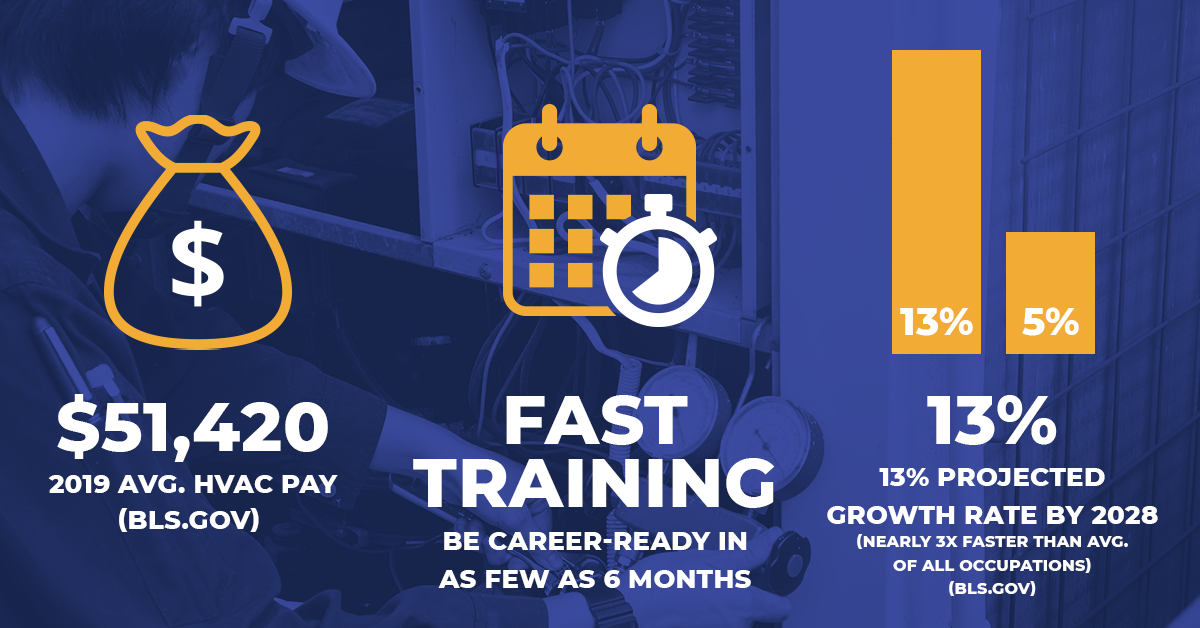
Photo credit: hvaccareernow.com
How Long Does It Take to Become an HVAC Technician?
There is no one straight path to becoming an HVAC technician. You can take part in an apprenticeship, get certifications and a degree, or get some on the job training. All these routes have different requirements and hence differ in their duration. The time is taken to become a technician also varies from state to state and depends on the prerequisites for an HVAC license in that state. Generally, it takes an average person around two to five years.
How Long Does HVAC School Take?
How long an HVAC school might take again depends from case to case and can take somewhere between six months to two years. The participants get themselves registered in an HVAC school and can either go for a degree or specific certification or even a combination of both. It depends on the state licensing requirements and the skills the participant is looking to hone.
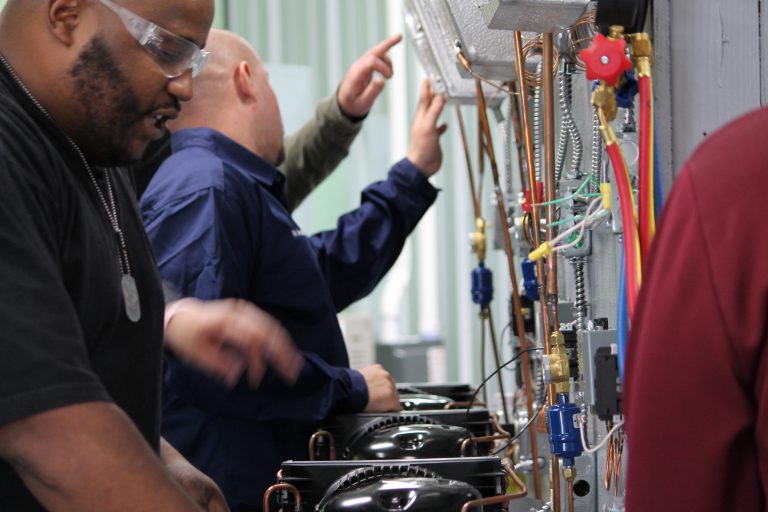
Photo credit: nettts.com
How to Become an HVAC Technician
While the exact requirements and procedure depending on the state you live in, we will give you a basic idea of what to expect. However, make sure that you check the state requirements before enrolling yourself or getting any certifications.
Start with your High School Degree
Most states will require you to complete your high school degree or its equivalent before you can formally start to pursue this career. Taking courses like technical mathematics or blueprint reading that will polish your vocational skills is a good idea. Additionally, try to choose classes whose subject matter is relevant to the HVAC industry, like mathematics, physics, or even shop class.
HVAC Certification
The next sensible step would be to go for some more classes and get an HVAC certification. It will not only help you learn some valuable skills or add value to your resume, but some states also require it. This part doesn't take too long, and you can be over with it in less than a year.
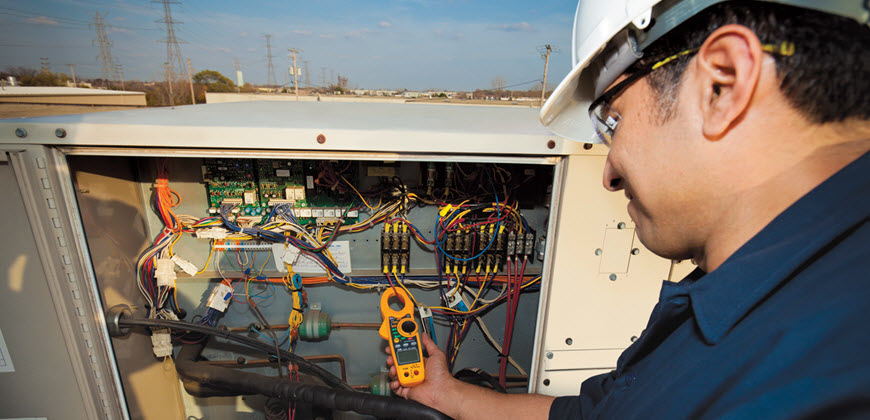
Photo credit: natex.org
Apprenticeship Program
For a field like HVAC, practical work training is indispensable. Hence, the on-site experience is a requirement in many states. Even if it is not mandatory, we strongly advise you to go for it. It will allow you to gain valuable experience from an experienced person in the field, and employers will be more inclined to hire your services. Moreover, most internship programs have a stipend, so you can earn some money while you are learning. This can take up to two to five years.
Certifications and Exams
Next, you need to look up certifications and any exam that your state might require you to sit for. NATE (North American Technician Excellence), a non-profit certification organization that provides HVAC-specialized certifications certification, is one of the most popular ones in the field, and for a good reason. They are the gold standard when it comes to HVAC certifications, and many contractors, manufacturers, and HVAC distributors partner up with them.
Passing a NATE certification means that the person is highly skilled, professional, and has attained valuable training, and hence is ready to work on a range of systems.
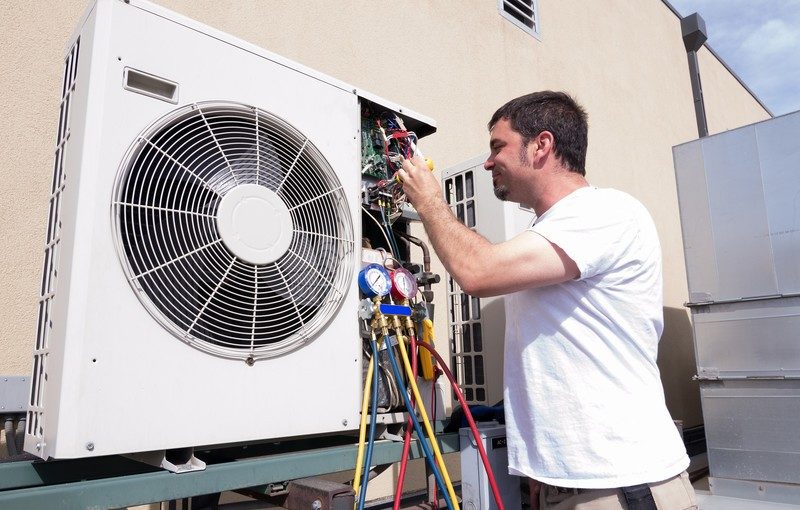
Photo credit: careerguts.com
What Does An HVAC Technician Do?
Primarily, an HVAC technician is involved in installing, repairing, and servicing HVAC equipment. While that may sound simple and straightforward, plenty of complementary knowledge of heating and cooling systems and skills are required for this.
You could be expected to read blueprints or know how to use specific tools like flow sensors or metal cutters properly to repair HVAC equipment. You need to have in-depth knowledge about HVAC equipment and its components to assess if they are working correctly. If not, then you need to know how to fix them. This includes motors, fans, electric circuits, compressors, thermostats, and pumps, among others.
Since your job is to handle HVAC equipment for your clients, you need to make sure you have adequate knowledge to do so. Any damage to their equipment could cost you a lot of money; hence, you must get proper training and complete all the requirements to obtain a license. If you like to get your hands dirty, have a knack for physics or engineering, or just like to fix things, this could be one of the most rewarding jobs for you.
HVAC Degree vs Certificate - Comparison Overview
Many people confuse the two terms or, even worse, substitute them with an HVAC license. These are all different terminologies and carry different meanings and values. A certificate usually takes less time, covers only a part of whatever you are learning, and has a more complementary value.
On the other hand, a degree is an accredited academic program that shows that the individual has expended a considerable number of hours and effort into learning the skill.
There are two types of degrees that you can go for: an associate degree program that will take two years or a bachelor's degree program that takes four years. A license is something that your state department will give you, which shows to the world that you have met all the requirements and are now fit to work as an HVAC technician.
Similarities
Perhaps, the only similarity between the two is that they come under the academic domain and help you learn valuable HVAC-related knowledge and skills. However, an in-depth analysis will show that they are more different than alike.

Photo credit: hvacschool.org
Differences
Firstly, the extent to which you cover the subject matter differs greatly in a certificate and a degree. This difference remains between the two-degree programs as well. An associate degree will be less detailed and extensive compared to a bachelor's degree. On the other hand, a certificate is narrower and much shorter and usually focuses on one particular aspect.
Since there is a difference in the kind of training, skill, and knowledge that a person with a degree and certificate has, the former would be better positioned to land a job. After a bachelor's degree, you could expect to take up research or even managerial positions. However, you might need to opt for an apprenticeship program and further training after a certification.
Moreover, the knowledge you gain during your degree will make you more suitable to go for professional HVAC certifications like NATE.
Conclusion
HVAC school is an essential milestone on the journey to become an HVAC technician. Make sure you go for one that is not only accredited but also offers quality education and teaches you valuable skills. Research what the requirements are to obtain a license in your state, and then plan your journey accordingly.
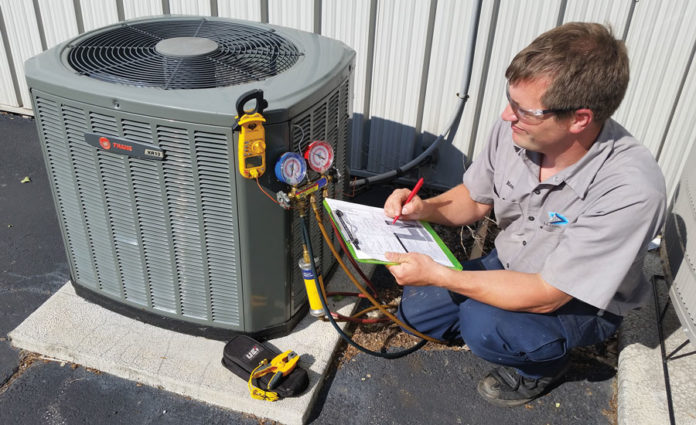
Photo credit: achrnews.com
People Also Ask
Despite the things we’ve covered above, you might still have some questions in mind. The following section answers some of the common questions that people have had while researching this topic. We advise you to read them all as they will give you much more clarity.
Is Becoming a HVAC Tech Worth it?
The short yet accurate answer is yes! HVAC technicians are in demand around the clock, and the market is far from saturated. The US Bureau of Labor Statistics has calculated that this sector's employment will increase by 15% by 2026. Moreover, HVAC techs are highly paid, and the top in the field earn more than $73,000 per year.
Is HVAC a Stable Career?
It is one of the most stable careers out there as it will never go out of demand. No matter the weather or political or economic condition of the country or your state, every household, buildings, corporations, and hotels would want heating and cooling systems installed, serviced, or repaired. Hence, it is one of those careers that are up and bust all year long.
Are HVAC Jobs in High Demand?
The population is only increasing in the United States. As a result, more and more houses and buildings are being built, which means HVAC equipment needs to be installed or repaired. This keeps the demand high and markets unsaturated.
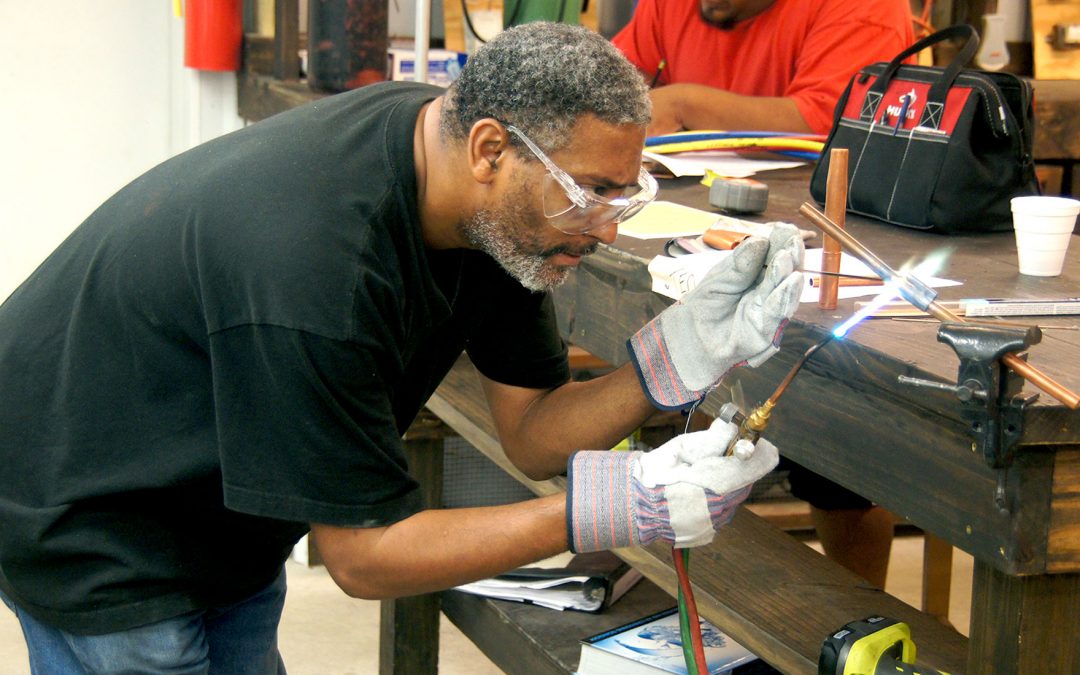
Photo credit: thetrainingcenterofairconditioningandheating.com
How Much is HVAC Training?
There is no definite answer to this as it depends on what college you go to and what program you are studying. Generally, an HVAC school with a program lasting six to twelve months will cost you between $1200 and $15,000. A community college with programs ranging from six months to two years will cost $4,868 annually for in-state students and $8,614 per year for out-of-state students. Lastly, an apprenticeship program of three to five years can cost you $500-$2000.
How Many Hours Do HVAC Techs Work?
Generally, HVAC techs will work 40 hours a week. Evening or weekend shifts are occasional and overtime. However, when the workload is high in certain seasons, irregular or overtime hours can be expected. Over 90% of HVAC techs work full-time. However, some are self-employed, so they have more flexible timings.
How Much Do AC Techs Make?
This can depend on a variety of factors, like the education you have, the school you went to, the experience you have, and the kind of skills and knowledge you possess. However, if we were to give a general figure, AC techs make $18.43 per hour.
What is the Starting Salary For HVAC Technicians?
While this could depend on the state you live in or on other factors, typically, an HVAC technician who is only just starting could be expected to make anywhere from $29,460 to $36,520 annually or $14 to $18 per hour.
Nearby HVAC Schools
Here are some HVAC schools in nearby states:
